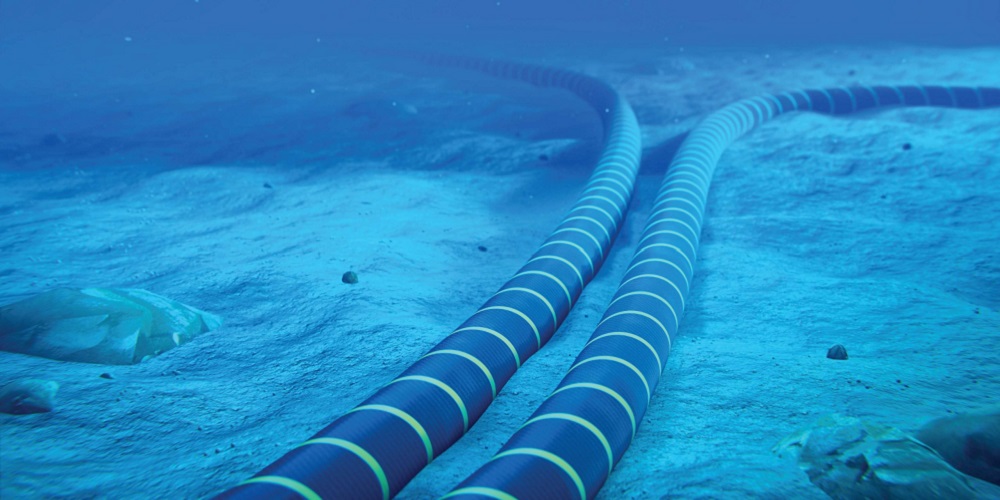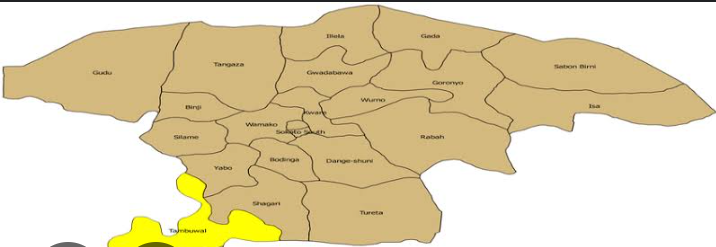News
Undersea Cable Damage Causes Internet Outage Across Africa

On Thursday, March 14, a significant undersea cable damage disrupted internet services not only in Nigeria but also across several African countries, causing widespread connectivity issues. The disruption affected nations such as South Africa, Ghana, Kenya, Ivory Coast, Liberia, Cameroon, Benin, and others.
The incident, centered near Abidjan in Côte d’Ivoire, impacted major undersea cables critical for telecommunications data transmission, leading to downtime across West and South African regions.
Vodacom, in a statement on X (formerly Twitter), acknowledged the connectivity issues faced by some customers due to the undersea cable failures, expressing regret for any inconvenience caused.
Moreover, the outage had a ripple effect on various services, including Microsoft Azure and Office 365. Financial news organization Bloomberg reported that the West Africa Cable System, MainOne, and ACE sea cables, vital arteries for telecommunications data, were among those affected.
In Nigeria, the internet outage disrupted bank networks, hampering transaction processing. MTN, responding to customer complaints about poor internet connectivity, attributed the issue to damage on international undersea cables across East and West Africa. The company assured customers that repair efforts were underway to resolve the situation promptly.
This recent outage compounds the challenges faced by the region’s internet infrastructure. Just last week, subsea cable operator Seacom encountered a service-affecting outage in the Red Sea, awaiting permits to begin repairs.
The Red Sea route serves as a crucial telecommunications link, connecting Europe to Africa and Asia via Egypt. The damaged cables, estimated to carry about 25% of regional traffic, were re-routed through alternative channels, including the west coast of Africa.
As repair efforts continue, businesses and individuals across Africa brace for potential disruptions in online services, highlighting the vulnerability of undersea cable infrastructure and the critical need for robust backup systems and contingency plans.
News
TES Community, NSIBIDI Project and Armstrong Agoreyo Host Successful Art Exhibition in Derby

By Kayode Sanni-Arewa
The recently concluded art exhibition Light in the Shadows: Stories of Hope, hosted at Banks Mill Studio, Derby, United Kingdom, has been hailed as a resounding success. Organized by TES Community and the NSIBIDI Project, with visionary contributions from Armstrong Oke Agoreyo, the three-day event drew nearly 200 attendees, showcasing the transformative power of art in fostering empathy, inclusion, and resilience.
The exhibition, which celebrated the creativity and resilience of individuals with Special Educational Needs (SEND), owes much of its success to Armstrong Oke Agoreyo.
As the Coordinating Artist, Armstrong not only conceptualized the exhibition’s theme but also played a pivotal role in bringing it to life.
He approached both TES Community and the NSIBIDI Project with the idea, tirelessly managing the participating artists and curating an impactful collection of works that highlighted the diversity of Derby’s artistic talent, particularly from minority communities. His leadership underscored the ability of art to bridge divides and create meaningful connections.
“Armstrong’s dedication to this project was extraordinary,” said Akindayo Akindolani, Executive Director of TES Community.
“From gathering award-winning artists to ensuring that the exhibition truly represented the voices of resilience and hope, his efforts have left a lasting impact.”
The exhibition featured some of Derby’s finest talents, including Armstrong himself, alongside Ayodeji Kingsley, Chike Felix Uzoka, Ed Heron, and Orinsunayo Akinniran.
Their works explored themes of healing, transformation, and identity, resonating deeply with attendees.
Notably, the exhibition also included Dan Webber, an award-winning Derby-based poet and producer, whose live poetry performances added a captivating auditory element to the visual showcase.
Among the standout stories was that of Clef Skyers-Aakerstrom, whose artistic journey began after a life-altering accident. Her work became a symbol of healing and transformation, inspiring attendees and reminding them of the power of resilience.
Reflecting on the success of the exhibition, Armstrong shared:
“This exhibition was a labor of love. I am deeply grateful to the artists, TES Community, and the NSIBIDI Project for believing in the vision and for working tirelessly to make it a reality. Seeing the impact on the attendees and the connections forged through the art has been incredibly rewarding.”
The event also laid the groundwork for future initiatives.
Building on its success, TES Community and the NSIBIDI Project announced plans to launch free art workshops and online training for young people in early 2025, aiming to empower creativity and support personal growth within the community.
The overwhelming success of Light in the Shadows: Stories of Hope has cemented its legacy as more than just an exhibition. It was a platform for storytelling, a celebration of resilience, and a call to action for inclusion and creativity, driven by the vision and determination of Armstrong Oke Agoreyo and the collaborative spirit of all involved.
News
BREAKING: Gunshots As Gunmen Abduct Anambra Lawmaker Returning Home For Christmas

By Kayode Sanni-Arewa
The Anambra State Police Command has confirmed the abduction of Mr. Justice Azuka, a member of the Anambra State House of Assembly representing Onitsha North Constituency.
Azuka was reportedly kidnapped on Tuesday night, December 24, 2024, along Ugwunapampa Road in Onitsha while returning home.
In a statement, Police Public Relations Officer Tochukwu Ikenga revealed that the Command has “activated operational plans for the possible rescue and arrest of the kidnappers.”
According to Ikenga, Azuka was taken around 9:20 pm by unidentified gunmen, and the police are working on some leads to facilitate his rescue.
The incident has heightened concerns about the growing insecurity in the region, particularly the spate of kidnappings targeting public figures. Residents of Onitsha have expressed fear over the safety of the area, calling for increased security measures. Authorities have urged the public to remain calm and cooperate by providing any information that could assist in locating the lawmaker and apprehending the perpetrators. As the investigation continues, the Anambra State Government has yet to issue an official statement on the incident.
This abduction marks another troubling development in the ongoing battle against insecurity in Nigeria, further underscoring the need for robust measures to protect citizens and public officials
News
Christmas day tragedy: Many feared dead as Nigerian Military Jet Bombs Sokoto Communities In Error

By Kayode Sanni-Arewa
A fighter jet targeting the notorious Lakurawa terrorist group has mistakenly bombed two communities in the Silame Local Government Area of Sokoto State, leaving many feared dead and several others injured.
The tragic incident occurred in the wee hours of Wednesday, December 25, 2024, affecting the villages of Gidan Sama and Rumtuwa. Villagers Caught in Airstrike.
Eyewitness accounts reveal that the villages, situated near the Surame Forest—a known hideout for Lakurawa terrorists and bandits—were unintentionally targeted during the airstrike. Residents described the moment bombs started dropping on the peaceful communities, catching the villagers unawares.
A source revealed that at least 10 people had been confirmed dead, while others sustained varying degrees of injuries.
Local officials, however, are still working to assess the full extent of the casualties and damage.
The chairman of Silame LGA, Alhaji Abubakar Muhammad Daftarana, expressed his deep sorrow over the incident.
“The villagers were innocent and peace-loving people with no criminal records.
“We are still assessing the development and cannot yet confirm the exact number of casualties,” Daftarana stated.
The Sokoto State Police Command has declined to comment on the incident, stating it was not a police operation.
Rising Concerns Over Lakurawa Terrorist Group The Lakurawa group has been linked to increasing attacks in the northern region of Nigeria, prompting calls for a specialised paramilitary force to counter their activities.
Prominent Islamic cleric Sheikh Ahmad Gumi recently urged the federal government to prioritise action against the group, describing their growing presence as a significant security challenge.
-

 News20 hours ago
News20 hours agoEx-Presidents’ wives lament disrespect after husbands’ tenure
-

 News20 hours ago
News20 hours agoInsecurity: Why I Will Not Probe Security Chiefs – Tinubu
-

 News20 hours ago
News20 hours agoI’ve never lied against anyone, says Dele Farotimi after regaining freedom
-

 News20 hours ago
News20 hours agoFG workers face gloomy Christmas over delayed Dec salaries
-

 News20 hours ago
News20 hours agoDoctors demand 70-year retirement age in new FEC memo
-

 Entertainment20 hours ago
Entertainment20 hours agoOsimhen joins Davido, Wizkid, Burna Boy at Tony Elumelu’s all-white party
-

 News16 hours ago
News16 hours agoHon Teejay Yusuf embarks on massive medical outreach in Kogi State (Photos)
-

 Sports21 hours ago
Sports21 hours agoSuper Eagles Coach Eguavoen Undergoes Surgery








